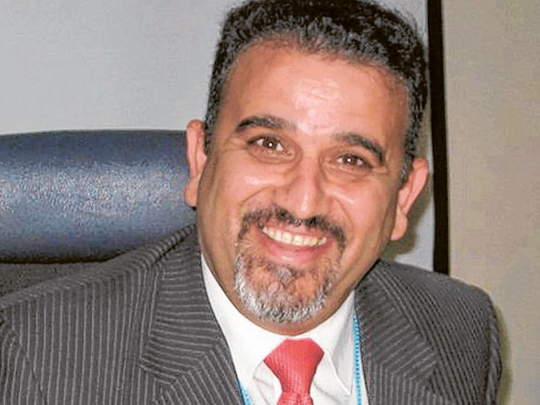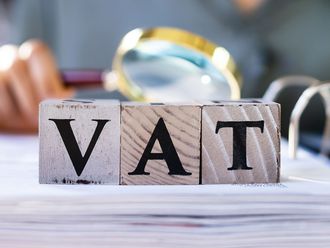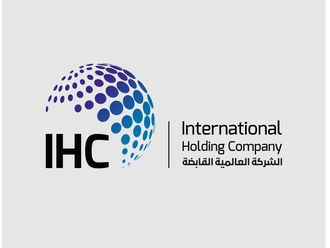
Dubai: Iraq is granting 100 per cent foreign ownership of properties in Baghdad in a bid to attract larger investment into the country's battered capital city, a top government official has said.
Mohammad Al Rubaye, head of the Strategic Planning Committee at the Baghdad Governorate Council, said the Iraqi investment law offers several incentives with respect to fund transfers as well as 15 tax-free years on raw materials and building materials once the investment licence is obtained and work commences.
In an exclusive interview with Gulf News, Al Rubaye also said that investment licences are being issued to various sectors for periods ranging from 25 to 50 years, depending on the project. The law also envisages administrative and logistic facilities as it ushers in a one-window policy. Excerpts:
Gulf News: Tell us about the investment law in Iraq.
Mohammad Al Rubaye: In August 2006 the Iraqi parliament passed investment Law No 13 which provides for establishing a National Investment Commission, chaired by a president with the rank of minister and run by a board of five to seven members.
A similar move was taken in Iraq's 15 provinces where an investment commission was established in each province. The commission comprises a chairman, deputy chairman and five members, including two members from the private sector elected by the Provincial Council through direct secret ballot.
As per the investment law, the 15 commissions have really been set up besides an investment commission established in the separate Kurdistan region in line with the regional autonomy law.
Yet all these commissions started functioning at the beginning of 2007 but progress was extremely slow due to the administrative and logistical requirements. The Baghdad Investment Authority was established in late 2007.
In the country's 2008 federal budget, the Iraqi government allocated funds for each province's commission for administrative purposes. The government also allocated a budget for the Supreme National Investment Commission, giving broad powers, including moral and administrative independence, to each investment body in Iraq's provinces.
However, the Provincial Council operates as an administrative watchdog to monitor each commission's administrative works whereas each commission is assigned to draw up investment plans. Such powers depend on the size of investors' projects. For example, if the investor's project is worth over $250 million, providing him with the investor's licence remains the exclusive prerogative of the National Investment Commission. The governorate is allowed to grant the investor's licence only if the project value is less than $250 million.
Generally, the investment commission of Baghdad took its first steps in the right track in 2009. With its wide-ranging powers, the investment law is ambitious but the reality is different. The reason can be attributed to centralisation in government institutions, including ministries, agencies, organisations, and even in Baghdad Municipality. Restricted powers for the investment commission and centralisation hindered the enforcement of the One-Window Rule — launched by Prime Minister Nouri Al Maliki even as the initiative encountered a lack of response.
I believe that investment culture cannot be exercised by institutions that work within the framework of centralisation. Moreover, the existing administrative corruption stands as an obstacle to the country's progress and prevents it from attracting foreign investments.
Everyone knows that ‘capital is a coward', a saying that simply means that capital is conservative and does not take great and unnecessary risks, and in fact it is true. How can investors come to Iraq to invest their funds when they watch on TV the daily security breaches; thus no one in Iraq and Baghdad in particular feels his funds are safe. This constitutes a barrier hindering the creation of a proper investment climate for potential investors.
Furthermore, administrative employees have not imbibed the culture of promotion for attracting investment and providing investment facilities and an appropriate investment environment, which are key factors for attracting capital rather than chasing investors.
In fact, the issue of land for projects presented a real concern for the National Province Commissions since 2009 until the latest amendment made to law No. 7 by the Cabinet. The amendment exempts investors from taxes, fees and rent on land being developed for residential purposes — a copy of the latest amendment will be made available later.
What is the volume of foreign investment in Iraq now?
Apart from investments in the Kurdish region, investment is not encouraging as it does not reach 5 per cent; however, I assume it is 25 per cent when considering those who received initial investment licences but have not yet embarked on implementation due to the aforementioned circumstances.
Are there sectors that are restricted to foreigners?
The law does not touch upon the issue.
What about foreign ownership of projects and real estate properties? And what is the foreigner ownership stake — is it 100 per cent?
For residential properties, the foreigner ownership is 100 per cent.
What are the investment guarantees for Arabs and foreigners?
There is a real concern over the issue of guarantees; each country has both international and local banks while the banking system in Iraq remains undeveloped and at a standstill. We are required to develop the banking system and policy. Federal institutions and ministries are operating within narrow frameworks and centralisation that restricts potential investments and guarantees. I am not sure that there are guarantees at present; therefore, we hope to develop the banking sector and provide great guarantees that attract foreign investors to develop the country's infrastructure as we have no other choice. The federal budget shows that Iraq expects to disburse 87 per cent of its budget for administrative operations and salaries, while the remaining 13 per cent is allocated for a five-year plan.
What about the investment climate in Iraq?
The answer might be a bit different at present; there are tens of Iraqis in each province who claim that they are investors just to get the investment licence, however the environment is not suitable for implementing projects.
What are the investment facilities and incentives being offered in Iraq?
The law boldly mentions several incentives pertaining to fund transfer as well as 15-year tax-waivers on raw materials, building materials and imported materials once the investment licence is obtained and work commences.
Investment licences are being issued to various sectors for periods ranging between 25 and 50 years, as per the investment and feasibility study of individual projects. The law also includes administrative logistic facilities mentioned in the one-window law, but such provisions have remained ineffectual on the ground.
What are the investment sectors that are currently open?
Housing plays a major role, as Iraq needs over two million residential units. In this regard, South Korea has signed a preliminary agreement, or a memorandum of understanding, to build one million residential units in Baghdad.
As far as I know, a memorandum of understanding was also signed with the Al Maabar Company. So housing comes on top of the list of open sectors, as the average Iraqi citizen needs a house of his own where he can live safely.
Tourism and entertainment take second place in the list of open sectors, the reason being that the country lacks entertainment locations including beaches, flowing landscapes and green expanses. Green zone projects have been taken up by local investors to a small extent lately. We look forward to developing tens of green zones on areas of 5 to 25 acres for public use.
On the other hand, hotels play a great role in tourism, as they are the best destination for giant foreign companies and host government events and activities, particularly after the 2003 regime change.
Nonetheless, although it is one of the vital sectors, the number of hotels in Iraq is quite low. For example, with a population of 8 million, Baghdad is home to five one-star hotels and tens of cheap developments offering miserable conditions.
There are several investment projects, two of which are in progress, namely Baghdad Tower in Zorae and Rotana in the Green Zone.
Furthermore, the health sector also plays a major role, therefore it is included on the list of priorities on the investment map.
There are not enough hospitals and health clinics to meet the minimum requirements of Iraqis. The health industry has an investment role to play as well.
What about free zones? Are there specific laws governing free zones? What can you tell us about this aspect?
There are only plans to further regulate border-based free zones to live up to the investment level.
The Al Anbar province submitted a proposal to the National Investment Commission which is under study, and there are attempts on the ground to create a free zone for wood, iron and building and raw materials in Baghdad where businessmen have long resided.
Does Iraq eye US and Chinese investment? Which one of these countries is more important for Iraq?
American strategic investments including small, medium or large scale investments do not seem to be taking place in Iraq in the near future.
We, as local leaders and specialists in the country's policymaking and strategies, are wondering about the secret behind the absence of competition between the US and Britain in Iraq, unlike East Asian countries such as China and Korea in terms of investment competition in Iraq. Both countries have investments in the country including the Al Ahdab Oil Field at Wasit and another one in Basra as well as residential and industrial investments.
Are there plans to cooperate with International companies to boost Iraq's power sector?
Yes, several Middle Eastern and Asian companies have contracted with most of Iraq's provincial councils and investment bodies to provide power output capacity that does not exceed 30 megawatts. This move has to an extent supported the Ministry of Electricity which suffered for want of capability to provide electric power in the past eight years.












